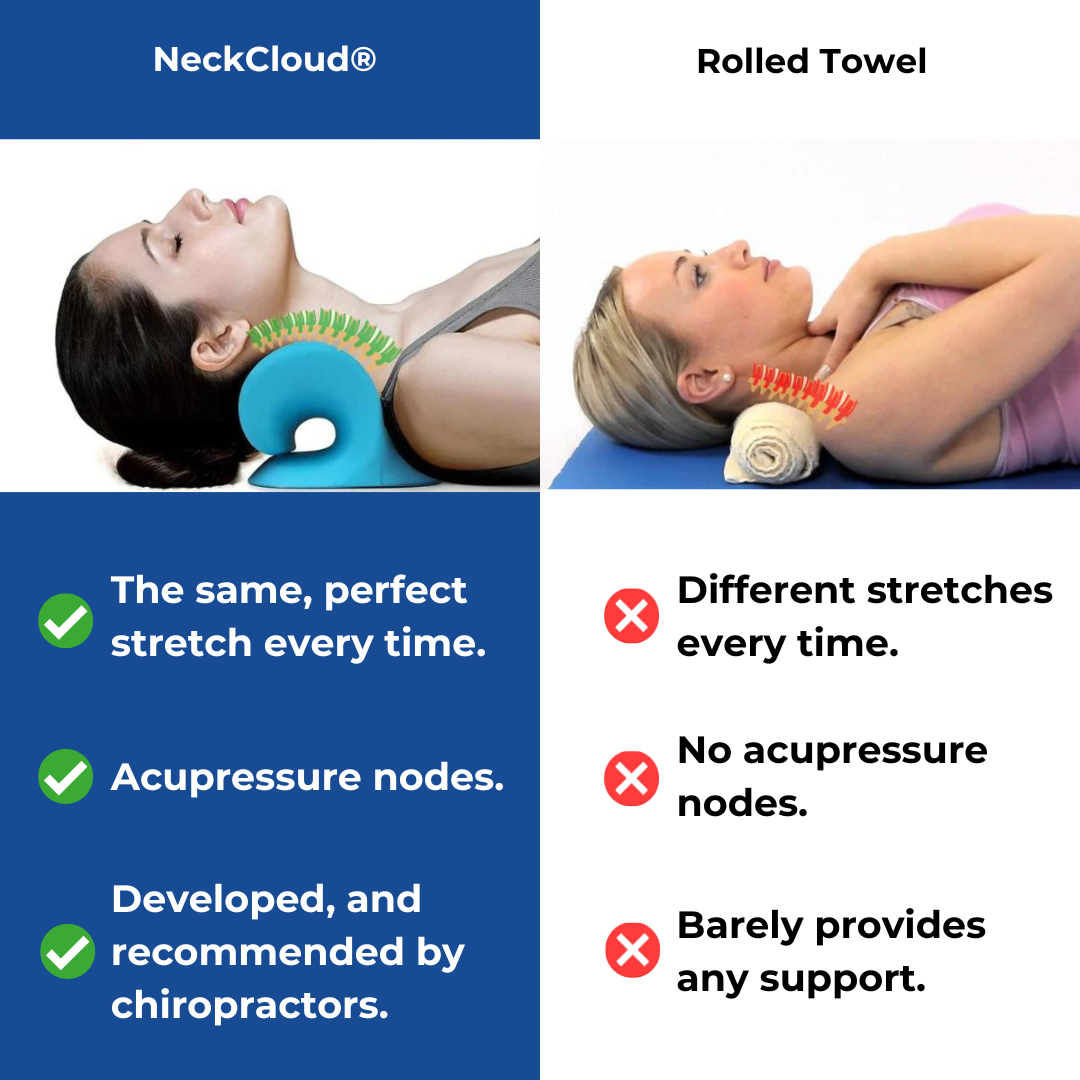Exactly How the Neck Cloud Can Aid With Chronic Neck Discomfort and Stiffness
The Influence of Stress on Neck Discomfort: Strategies for Minimizing Stress and Discomfort
In today's busy globe, it's no secret that stress and anxiety has come to be a widespread aspect in the beginning and worsening of neck discomfort. Join us on a trip to decipher the impact of anxiety on neck pain and discover reliable ways to relieve discomfort and enhance total top quality of life.
Recognizing Stress-Related Neck Discomfort
Stress-related neck discomfort can manifest as stress, tightness, or discomfort in the neck and shoulder area. The link between tension and neck pain lies in the body's physiological action to stress and anxiety, which can result in muscle mass tension and tightness in the neck muscular tissues.

Identifying Common Stress Areas
One common stress area is the neck, where anxiety often materializes literally. Stress migraines, stiff neck muscles, and limited variety of activity are usual signs and symptoms of stress-related neck stress. Being mindful of these usual stress areas can assist individuals recognize the physical indicators of stress and take actions to address them prior to they intensify into chronic pain or pain.
Carrying Out Relaxation Techniques
Relaxation methods are important tools for decreasing neck discomfort triggered by stress and anxiety. In addition, activities like yoga exercise and tai chi incorporate both physical movement and relaxation, making them reliable practices for reducing stress and neck pain. By incorporating these leisure methods right into your everyday routine, you can aid manage stress levels, lower tension in the neck, and minimize discomfort associated with stress-induced neck pain.
Including Self-Care Practices
Incorporating self-care practices is essential for maintaining total well-being and managing stress-related neck discomfort efficiently. Taking part in regular exercise, such as gentle extending exercises or yoga, can help ease stress in the neck and shoulders. Practicing great pose throughout the day and taking constant breaks from extended resting or screen time can also protect against pressure on the neck muscles.
Furthermore, prioritizing adequate rest and developing a consistent rest routine can contribute substantially to reducing anxiety levels and promoting leisure. Creating a calming going to bed routine, such as reading a publication or taking a warm bath, can help prepare the body and mind for relaxed sleep. In addition, keeping a well balanced diet regimen abundant in nutrients and staying moisturized can sustain total wellness and reduce inflammation that may worsen neck pain.
Integrating mindfulness practices, Read Full Report such as deep breathing workouts or reflection, can aid handle stress and anxiety and advertise leisure. Taking time for oneself, taking part in hobbies, and setting limits to protect individual time are also vital aspects of self-care that can contribute to lowering stress and easing neck discomfort.
Looking For Specialist Assistance
Just how can people effectively attend to persistent neck discomfort that is influencing their daily life and wellness? Looking for professional help can be an important action in managing and relieving neck discomfort. Consulting with health care professionals such as chiropractic specialists, physical specialists, or orthopedic professionals can provide valuable insights and tailored treatment strategies. These experts can carry out detailed evaluations to diagnose the underlying sources of neck pain and suggest proper interventions.
Chiropractors concentrate on spine adjustment techniques to enhance alignment and lower tension in the neck location. Physical therapists supply targeted exercises and stretches to enhance muscle mass, boost versatility, and boost general neck function. Orthopedic specialists can offer innovative clinical treatments such as injections or surgical alternatives for extreme instances of neck discomfort.
Final Thought

Stress-related neck discomfort can show up as tension, tightness, or pain in the neck and shoulder location. The link in between anxiety and neck pain lies in the body's physical response to stress, which can result in muscle tension and tightness in the neck muscle mass. Tension headaches, rigid neck muscles, and limited range of activity are common symptoms of stress-related neck stress. By incorporating these leisure methods into your everyday regimen, you find out this here can help handle anxiety levels, reduce stress in the neck, and alleviate pain linked with stress-induced neck discomfort.
